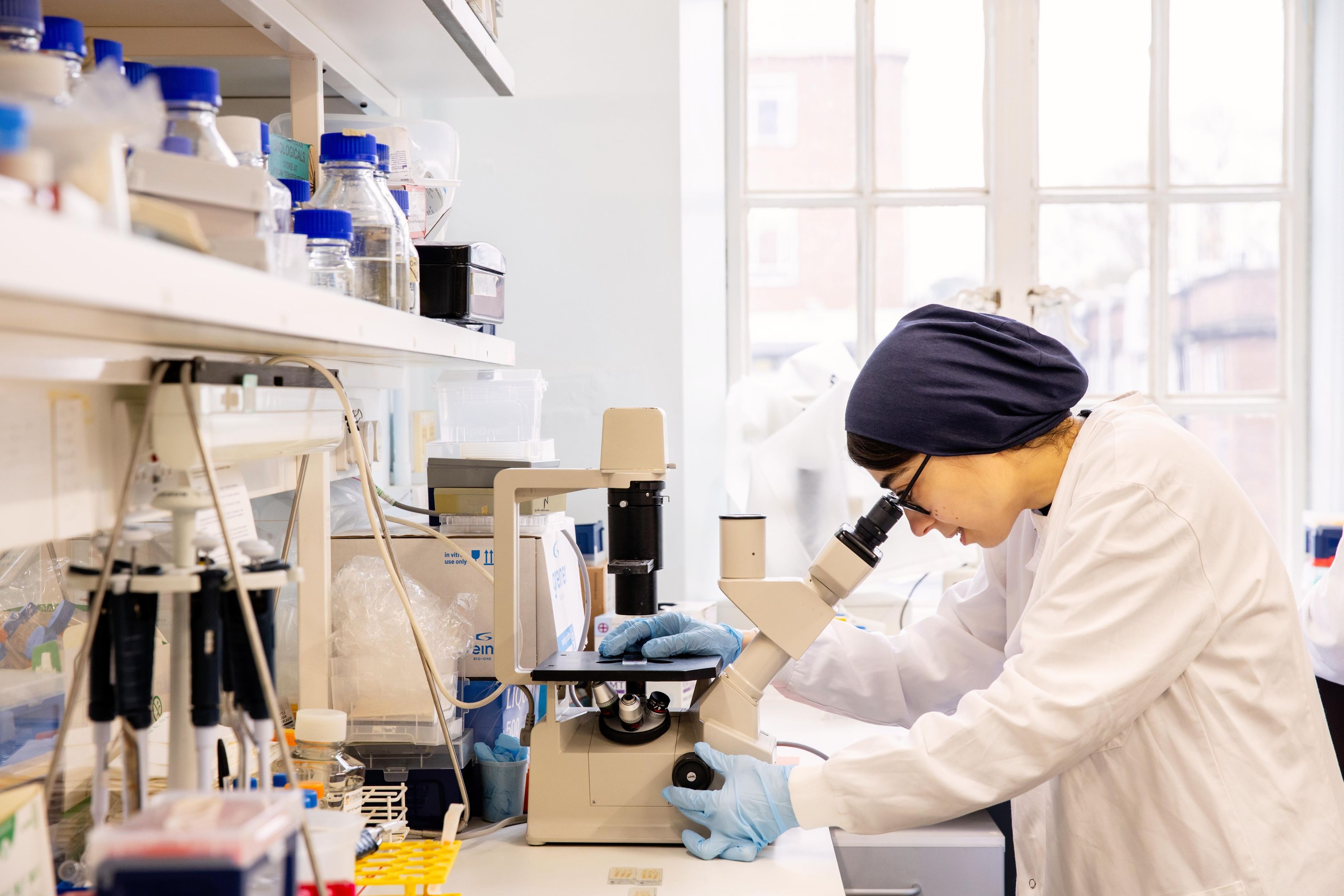Current research roles and opportunities
Find out about our current research roles and how to apply

On this page
Research Fellows
Each year, the college holds competitions for Research Fellowships, both Stipendiary and non-Stipendiary. These support gifted young researchers for four years; generally Research Fellows are appointed within two years of the award of a doctorate.
The Fellowships give young researchers an opportunity to establish their career before moving on to become fully independent researchers. Research Fellows have freedom to carry out their chosen research projects within the academic environment of the College and the University departments.
Stipendiary Research Fellowships
Usually, Research Fellows are appointed by the College Research Committee following interviews in mid-January, with a start date in October of that year. For January appointments, advertisements will appear in late July/early August with closing dates in September. Shortlisted candidates will be informed in the first part of December. We invite candidates to attend interviews in person.
Benefits
Research Fellows are members of the Governing Body, with full privileges of Fellows. The Fellowship is a research post and is meant to allow Research Fellows to freely pursue and focus on their research, but they are encourage to take advantage of opportunities to undertake a small amount of University and/or College teaching and to take part in the College's Outreach and Widening Participation activities. Research Fellows join a lively research community, made up of Fellows, Research Fellows and College Research Associates and are expected to participate fully in college life and activities. In addition to a competitive stipend and additional accommodation allowance, privileges include free meals in College (breakfast, lunch and dinner on all days that the servery is open as well as high table dinners) and the possibility of an office and accommodation in College properties.
Eligibility
The King's College Research Fellowships are aimed at people who are at the beginning of their academic career. The ideal candidate will have a strong background in a relevant area of work and has completed or will be completing shortly an outstanding doctoral these. Candidates must not have undertaken more than 2 years postdoctoral work or work outside of academia by the 1 October of the year of their appointment to the Research Fellowships. Applications are welcome from graduates of any university and from international as well as UK applicants.
Non-stipendiary Research Fellowships
The college also usually appoints one or two non-stipendiary Research Fellows, one in Physical Sciences, Mathematical Sciences & Engineering and one in Biological & Medical Sciences. Advertisements appear in March/April and close for applications in late April/mid-May. Long-listed candidates with be notified in mid-May. Short-listed candidates will then hear in early July for interviews in mid-July. Their appointment starts in October of that year.
Eligibility
Non-stipendiary Research Fellows will need to have already secured external funding for the time of their fellowship and provide a letter from their head of department to confirm that this is in place when applying.
Any questions can be directed to the Research Coordinator at research@kings.cam.ac.uk in the first instance.
Competitions will appear on this page when they open. Competitions that have recently closed will be visible for some time after the deadline below for reference.
College Research Associates
King’s College makes up to eight appointments to College Research Associates each year in any subject. Applicants must at the time of appointment be of post-doctoral standing, and may be graduates of any university. They must at the time of appointment, and for the duration of the appointment, be employed by the University of Cambridge in a post-doctoral research role. There are no conditions of age or subject attached to these positions, but candidates would normally be early in their research careers.
Applications can be from individuals or from groups of up to three. Appointments will be for two years, potentially renewable for a further two years. Applicants must, at the time of appointment, have funding for at least a full year.
Applicants must submit a plan for academic activities linked to their research which will be undertaken within King’s. This could, for instance, involve work with King’s Fellows or doctoral students, use of college archives or research facilities, or the writing of an article.
Research Associates have access to the SCR, the library and other College facilities. They have the right to lunch and dine in College with one High Table dinner and two lunches per week free of charge. Up to £600 per year of research expenses is available through the Research Committee. Presentation of their work to the Fellowship and Graduate student body will be expected of all Associates at some point during their tenure.
Details of competitions for College Research Associate positions can be found below on this page when they open.
Open Competitions
- currently no open competitions

